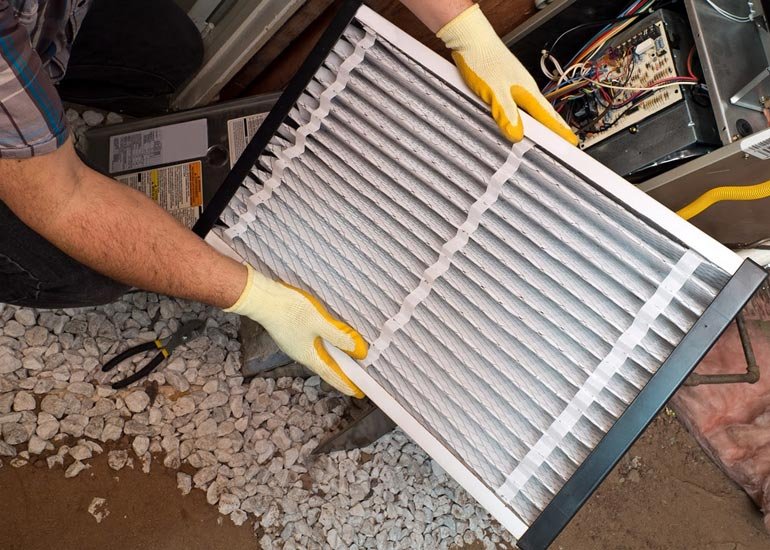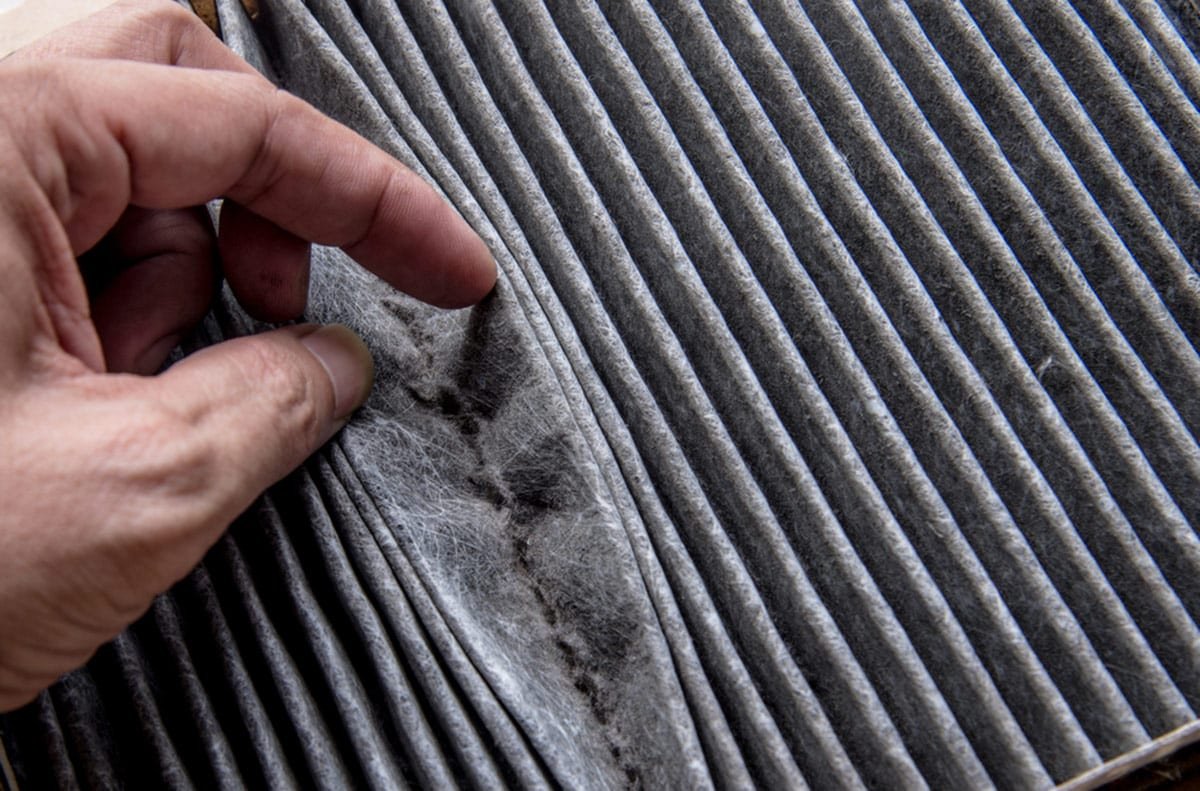Your furnace is a vital part of keeping your home comfortable. But did you know it can’t function properly without the right filter? Without a good filter, dirt, dust, and other debris can get into your system and lead to significant issues like clogged air ducts or, even worse, costly repairs.
This blog post will explore why having the right filter is so essential for running an efficient furnace and how to ensure that yours has what it needs!
Yes, Your Furnace Will Run Without A Filter
Yes, your furnace will run without a filter, but it’s not recommended. Many homeowners don’t realize how vital furnace filters are for their HVAC system’s health and efficiency. Your furnace will turn on and run without a filter, but it’s not a good idea.
The Potential Damage to the System
When you run your furnace without a filter, you open the system up to all sorts of debris and particles that should never come into contact with the internal components. The blower motor is responsible for circulating air through your furnace, and when it pulls in debris, it can clog up the motor and cause it to wear out prematurely.
This debris can also infiltrate other parts of your HVAC system, such as your ductwork. Over time, it may cause damage to other components, leading to expensive repairs.
Decreased Efficiency and Higher Energy Costs
Another problem with running your furnace without a filter is decreased efficiency. When debris builds up in your furnace, it creates a layer of insulation around your furnace’s heat exchanger. This layer of insulation forces your furnace to work harder to reach the thermostat’s temperature. As a result, you’ll see a spike in monthly heating bills, which can add up over time.
The Importance of Furnace Filters
So, why is it so important to keep your furnace filter clean? Aside from the potential damage to your system and the increased energy bills, there are other reasons why your furnace filter is essential. For example, a furnace filter helps capture dust, pollen, and other pollutants that can negatively impact indoor air quality.
The filter traps these pollutants, preventing them from circulating throughout your home and reducing allergens or irritants in the air that can cause serious health impacts.
The Consequences of Not Using a Filter
Here are some hidden consequences of not using a furnace filter.
- Reduced Efficiency: The primary function of a furnace filter is to capture dust, dirt, and other pollutants from the air before they are circulated into your home. A dirty or clogged filter can significantly reduce airflow and make your furnace work harder to achieve the same level of heating. This results in increased energy consumption and higher utility bills. In severe cases, a dirty filter can cause your furnace to overheat and shut off, leading to costly repairs or replacements.
- Poor Indoor Air Quality: Without a furnace filter, the air in your home can get polluted with harmful particles such as pollen, dust mites, bacteria, and viruses. It can exacerbate allergies and respiratory problems, especially for people with pre-existing conditions such as asthma. Poor indoor air quality can cause headaches, fatigue, and other health issues.
- Shortened Furnace Lifespan: A clean furnace filter extends the life of your heating system by reducing strain on the blower motor and other components. When your furnace has to work harder to circulate air because of clogged filters, it puts more wear and tear on the system, shortening its lifespan.
- Potential Safety Hazards: Neglecting furnace filter maintenance can pose safety hazards like carbon monoxide leaks. A dirty filter can cause overheating and lead to a cracked heat exchanger, allowing carbon monoxide to leak into your home. Carbon monoxide is a colourless, odourless gas that can be lethal in high concentrations.
- Voided Warranty: Furnace manufacturers require regular maintenance, including filter replacement, to maintain your furnace warranty. Neglecting filter replacement can void your furnace warranty, leaving you with significant repairs or replacement costs if needed.
How Often Should You Change Your Filter?
The Factors that Affect Filter Change Frequency
The first factor that influences how often you should change your furnace filter is the type of filter used. Some filters can last up to six months, while others should be changed monthly.
Second, the number of people in your home can also affect how often you change your filter. A household with more people will generate more dust and debris, causing the filter to clog faster. Pets are also significant, as their hair or dander can quickly clog your filter.
Lastly, if anyone in your home has allergies or respiratory issues, you should frequently change the filter. In this case, you want to keep the indoor air quality as pristine as possible.
General Rule for Changing Your Furnace Filter
A general rule of thumb is to change your furnace filter once every one to three months. This rule should be a good starting point for most households, but always consider the factors mentioned above to better understand your filter change schedule.
You may need to change your filter less frequently for households with only one or two people, fewer pets, and no respiratory issues. On the other hand, households with several people, multiple pets, or poor indoor air quality may need to replace their filters every month.
Longevity of Certain Filters
Certain furnace filters are longer-lasting than others. For instance, pleated filters should last between three to six months. In contrast, fibreglass filters should be changed once a month or two. The more advanced the filter’s filtration capabilities, the more durable it is, and it can usually last longer.
Conclusion
In conclusion, it’s essential to recognize that while your furnace can run without a filter, it’s not recommended. The potential damage to your system and decreased efficiency can be costly. Furthermore, the importance of furnace filters extends beyond your system’s health to indoor air quality, especially if anyone in your home has allergies or respiratory issues.
The frequency with which you should change your furnace filter depends on several factors, including the type of filter and the number of people or pets in your home. However, changing your filter every one to three months is generally recommended. Doing so will keep your furnace running smoothly, protect your system from damage, and keep your home’s air healthy and clean.
It may seem like an insignificant detail compared to the enormous machinery of your heating and cooling system. Nevertheless, the details like this make a difference in your home’s overall health and comfort. So, replace your filter regularly with high-quality ones to maintain your system’s optimal efficiency and air quality.








